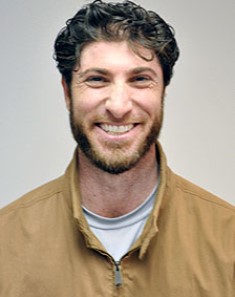Disclosure :: this post is sponsored by Touchstone.
Tips for Working with Pre-School Children with Autism
Starting a new school can be scary for anyone — parents, teachers and kids are all adjusting to new routines and environments. If your child has Autism Spectrum Disorder (ASD) and is starting in a pre-school setting, your transition may be slightly different. Stay calm, and keep in mind some things you can do to help your child acquire the skills and resources they need for their ongoing development.
Facing this challenge head on now is key as your pre-school age child will be advancing into a higher-level school setting before you know it. It’s crucial for parents to convey to teachers and caretakers exactly what autism is and how to best assist their little ones. Remember these helpful tips for working with pre-school children.
 Parents, start by becoming an expert on your child. While this may seem obvious, knowing what triggers your child’s disruptive behavior and, on the other hand, what prompts a positive response will help you advise teachers how to troubleshoot problems. In most circumstances, teachers will be grateful for advice on how to modify situations that may prove difficult for your child. Pay close attention to what your child finds stressful, scary, uncomfortable, pleasant, comforting, etc.
Parents, start by becoming an expert on your child. While this may seem obvious, knowing what triggers your child’s disruptive behavior and, on the other hand, what prompts a positive response will help you advise teachers how to troubleshoot problems. In most circumstances, teachers will be grateful for advice on how to modify situations that may prove difficult for your child. Pay close attention to what your child finds stressful, scary, uncomfortable, pleasant, comforting, etc.
Reinforce learning by creating consistency in your child’s environment. You can do this by implementing techniques from your child’s therapy sessions at home and finding out what methods he or she is using to communicate at school. Since children with ASD have a difficult time applying what they’ve learned in one setting to other settings, consistency is key.
Rewarding good behavior goes along way with children with ASD. Positive reinforcement can range from anything to giving your child a sticker to allowing them to have extra time to play with their favorite toy or game. Get creative in the way you reward your child for his or her good behavior and make a consistent effort to praise your child for doing something good.
Celebrate your child’s quirks rather than focusing on how your child with ASD is different from other children. Don’t compare your child to others, but practice acceptance. Nothing will help your child more than feeling unconditionally accepted.
Since each child on the spectrum is unique and there are so many different treatments available, it’s important to create a personalized plan that’s the right approach for your child. When gathering advice from other parents, teachers, friends and doctors, keep in mind that there is no single treatment plan that works for every child. The plan you develop should put your child’s best interests at the forefront, offer a consistent schedule and engage your child’s attention in highly structured activities. In addition, your plan should break down tasks to a series of simple steps and provide regular reinforcement of both positive and negative behavior.


In Baton Rouge, Touchstone Applied Behavior Analysis is excited to be entering into a collaborative effort with St. Lillian Academy and Excellence in Speech Pathology (ESP) to develop a preschool program that provides seamlessly integrated services to preschool children with disabilities. Services offered will include: ABA therapy, Speech Therapy, Augmentative Communication, Occupational Therapy and Physical Therapy.
Touchstone’s educational work helps schools improve productivity, staff retention and safety by impacting workplace and interpersonal behavior. For more information on Touchstone services, call (985) 446-6833 or email [email protected].
About Derek Shanman, Ph.D., LBA, BCBA-D, CABAS


Living in Louisiana for the past four years, Derek has come to know and love the region and its people. Based out of New Orleans, Derek has found passion working with ABA clinics and schools who are interested in employing behavior analytic strategies throughout the southern Louisiana region. Derek loves being surrounded by people who are willing to open their eyes to things they haven’t seen before and who generally have a passion for learning and helping those in need. When Derek isn’t in a school, clinic, or on the road, you can probably find him in one of New Orleans famous restaurants or taking in all that the city has to offer.
















